1
Rem tene, verba sequentur: grasp the subject, and the words will follow. This, I believe, is the opposite of what happens with poetry, which is more a case of verba tene, res sequenter: grasp the words, and the subject will follow.Umberto Eco
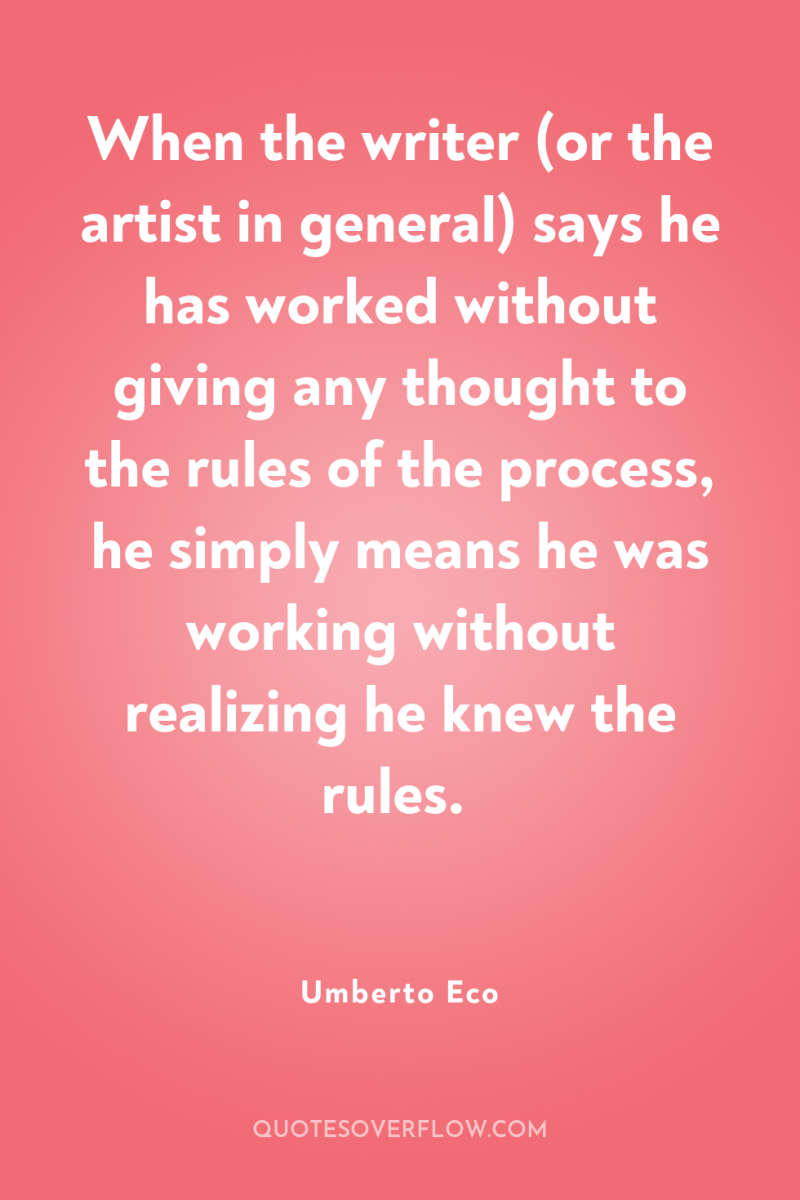
2
When the writer (or the artist in general) says he has worked without giving any thought to the rules of the process, he simply means he was working without realizing he knew the rules.Umberto Eco
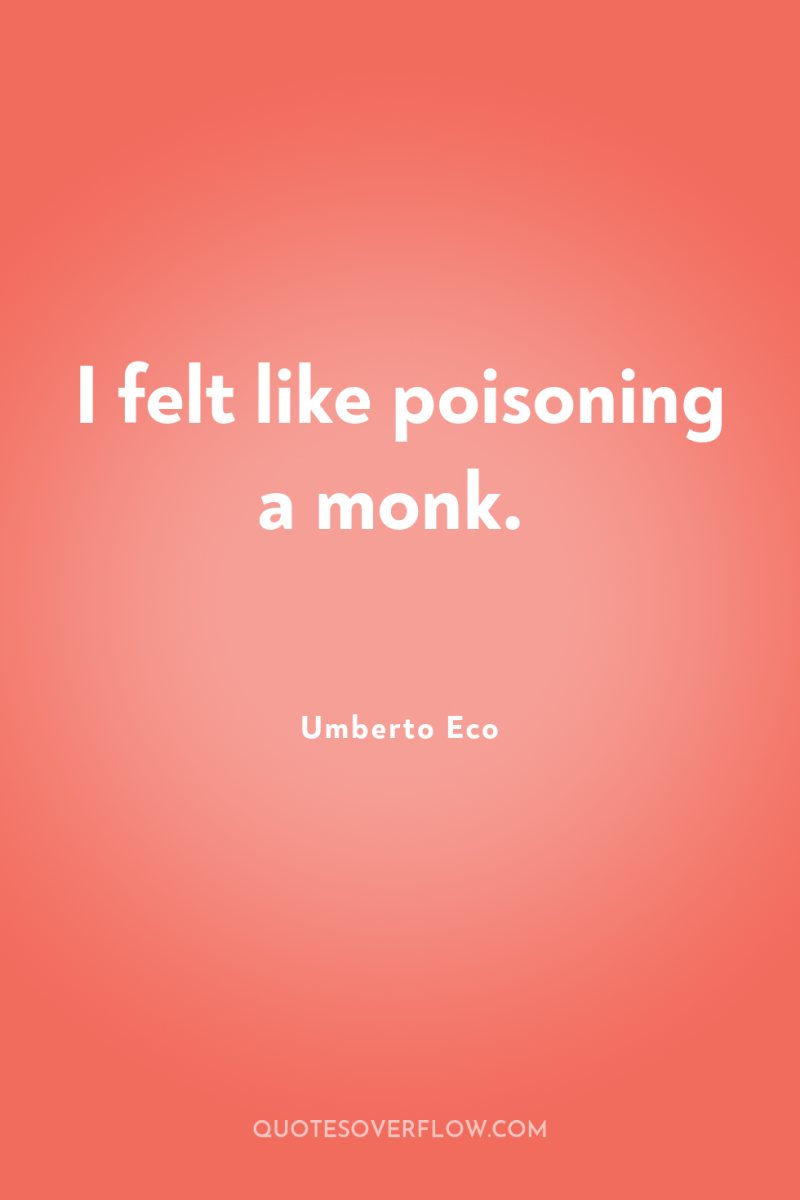
3
I felt like poisoning a monk.Umberto Eco
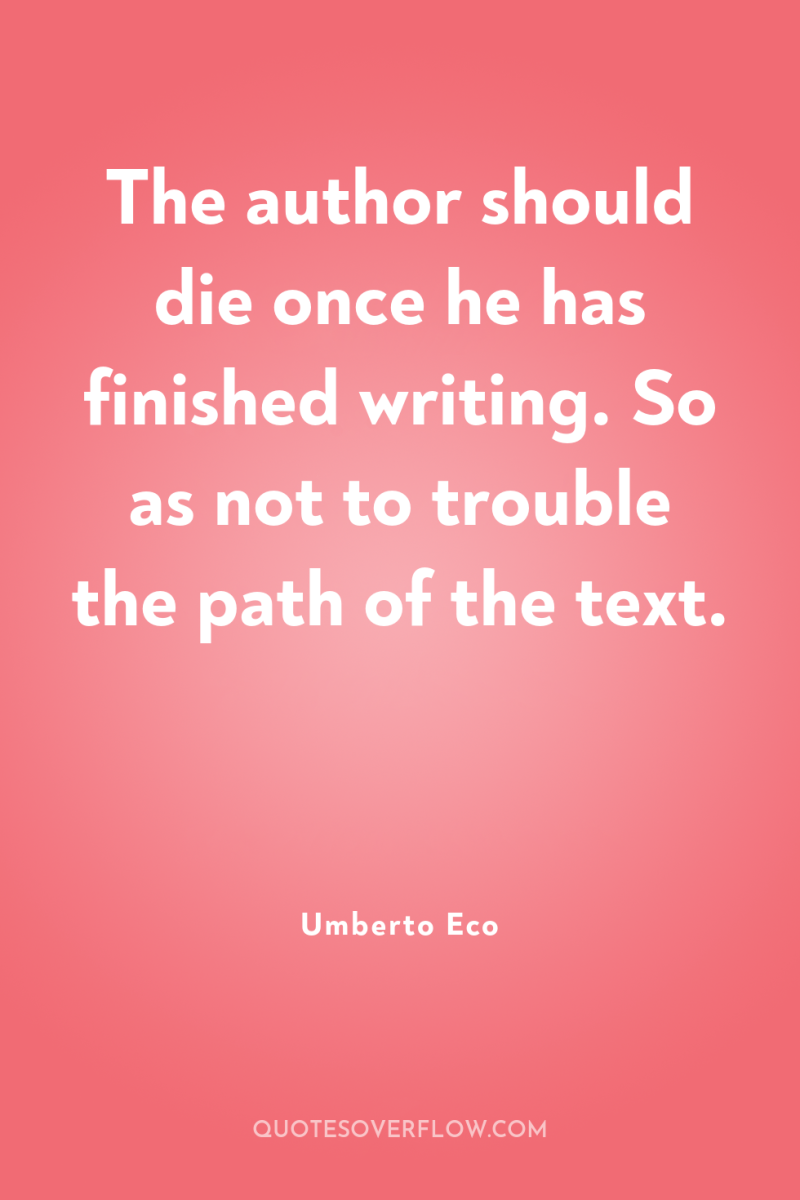
4
The author should die once he has finished writing. So as not to trouble the path of the text.Umberto Eco
5
In the Middle Ages, cathedrals and convents burned like tinder; imagining a medieval story without a fire is like imagining a World War II movie in the Pacific without a fighter plane shot down in flames.Umberto Eco

6
Is it possible to say "It was a beautiful morning at the end of November" without feeling like Snoopy?Umberto Eco
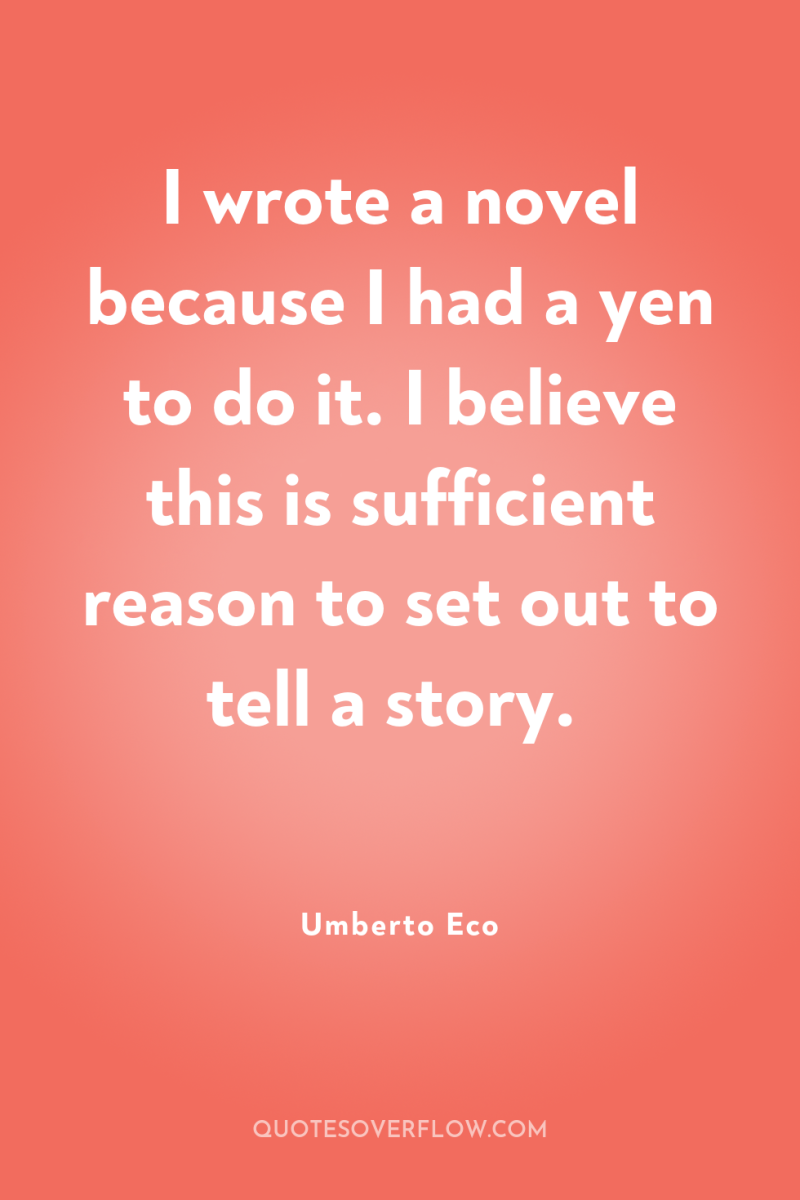
7
I wrote a novel because I had a yen to do it. I believe this is sufficient reason to set out to tell a story.Umberto Eco
8
It seems that the Parisian Oulipo group has recently constructed a matrix of all possible murder-story situations and has found that there is still to be written a book in which the murderer is the reader. Moral: there exist obsessive ideas, they are never personal; books talk among themselves, and any true detection should prove that we are the guilty party.Umberto Eco
9
[W]hen I put Jorge in the library I did not yet know he was the murderer. He acted on his own, so to speak. And it must not be thought that this is an 'idealistic' position, as if I were saying that the characters have an autonomous life and the author, in a kind of trance, makes them behave as they themselves direct him. That kind of nonsense belongs in term papers. The fact is that the characters are obliged to act according to the laws of the world in which they live. In other words, the narrator is the prisoner of his own premises.Umberto Eco
10
I discovered ... that a novel has nothing to do with words in the first instance. Writing a novel is a cosmological matter, like the story told by Genesis (we all have to choose our role models, as Woody Allen puts it).Umberto Eco
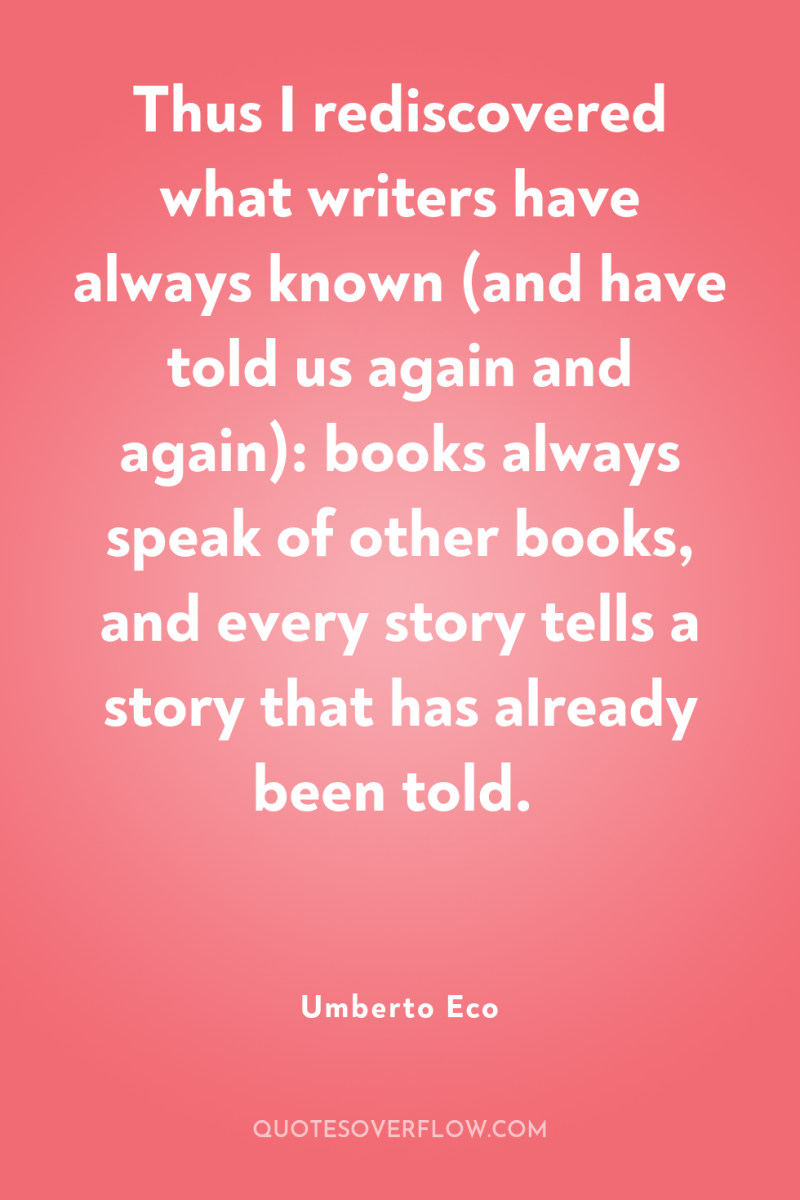
11
Thus I rediscovered what writers have always known (and have told us again and again): books always speak of other books, and every story tells a story that has already been told.Umberto Eco
12
Entering a novel is like going on a climb in the mountains: you have to learn the rhythm of respiration, acquire the pace; otherwise you stop right away.Umberto Eco
13
I lacked the courage to investigate the weaknesses of the wicked, because I discovered they are the same as the weaknesses of the saintly.Umberto Eco
14
The fine thing about pacts with the devil is that when you sign them you are well aware of their conditions. Otherwise, why would you be recompensed with hell?Umberto Eco
15
After all, the fundamental question of philosophy (like that of psychoanalysis) is the same as the question of the detective novel: who is guilty?Umberto Eco